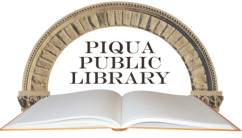The Story of the Piqua Public Library
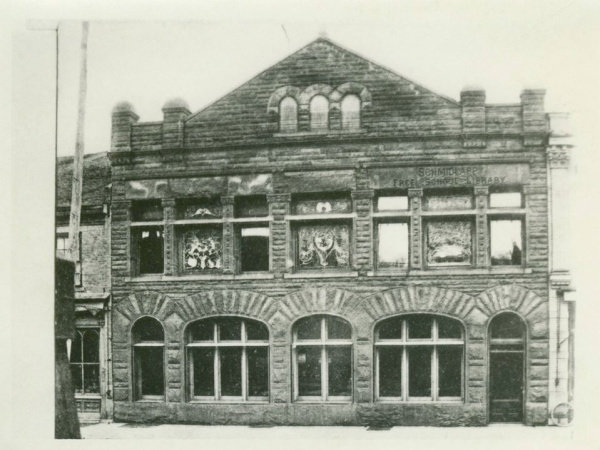
A permanent Library in Piqua was created in 1890, after three failed attempts during the second half of the nineteenth century. Jacob Schmidlapp donated his family store and home at 509 North Main Street, to the Piqua Board of Education. The new Library formally opened to the public on October 18, 1890 under the name The Schmidlapp Free School Library. The Library was operated by a committee of the Board of Education and Sue Hetherington, the first librarian.
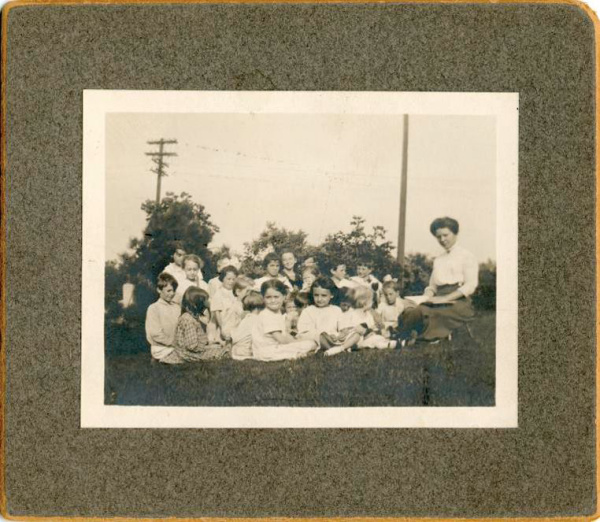
In 1900, the Library adopted the Dewey Decimal System and created a card catalog. For the first time the general public was permitted to browse and select books from the Library stacks. Piqua's youth were the target of one of the Library's first outreach programs in 1911 with the beginning of a children's story hour. Library administration changed in 1924 when a new state law mandated the creation of a Library Board of Trustees separate from the school board.
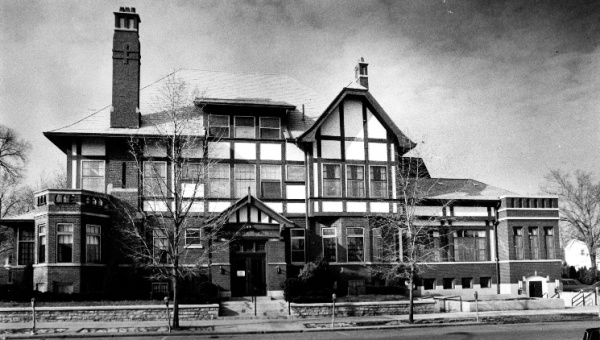
With a continued need for new space, the Library began looking for a new building. With a donation by Leo Flesh, the former Piqua Men's Club at 124 West Greene Street was purchased. On November 4, 1931, the newly remodeled building was opened to the public. The new Flesh Public Library held over 25,000 volumes. The Library used its increased space for new programs and new collections including government documents during World War II, a phonograph collection in 1948, in the 1960's a photocopying machine and the first of the children's summer reading programs, and in 1980 a film collection and a hospital outreach program.
A growing collection led to the completion of a an addition on the east side of the Library in 1978. A major reorganization occurred in 1986 with the creation of two new departments in the Library, the Information & Reference Department and the Local History Department. At that same time five departmental coordinators were created and a coordinator's committee formed. During the last twenty years of the Library, phonograph records have been replaced by music compact discs, the card catalog by The Library Corporation's automated computer system (1996), and many printed reference materials became available electronically by way of the Internet in 1997 when the Library connected to the Ohio Public Library Information Network (OPLIN).
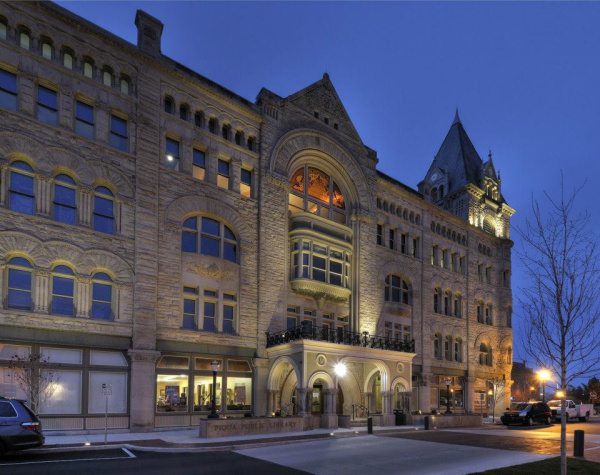
The Library moved to the newly renovated Fort Piqua Plaza building at 116 West High Street on October 20, 2008. The Library's new name, The Piqua Public Library, was officially announced on October 20, 2008.
